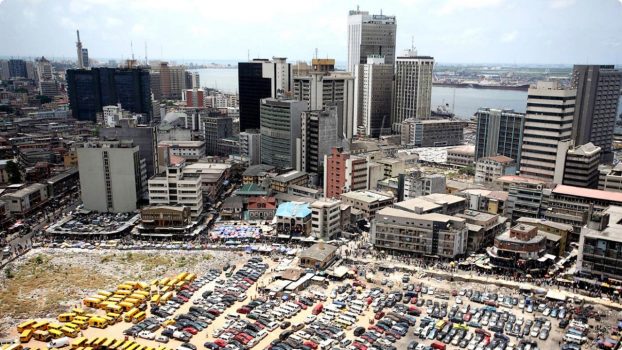
The Gross Domestic Product (GDP) of Nigeria recorded a year-on-year growth of 1.94 percent in real terms in the second quarter of 2019.
According to the latest data released on Tuesday morning by the National Bureau of Statistics (NBS), the Q2 2019 growth was higher than the 1.50 percent rise achieved in the second quarter of 2018, indicating an increase of 0.44 percentage points.
According to the NBS, when compared to the 2.10 percent recorded in the first quarter of 2019, the Q2 2019 real growth rate however indicated a decline of 0.16 percentage points.
During the quarter, the NBS data showed that aggregate GDP stood at N34.944 trillion in nominal terms, an increase of 13.83 percent over the performance in the second quarter of 2018 and 9.8 percent over the preceding quarter.
The performance observed in Q2 2019 follows an equally strong first quarter performance, and was likely aided by stability in oil output as well as the successful political transition.
Overall, a total of 15 activities grew faster in Q2 2019 relative to last year, while 13 activities had higher growth rates relative to the preceding quarter.
In the second quarter of this year, the oil sector posted a real growth rate of 5.15 percent, representing a 9.10 percent points increase relative to the rate recorded in the corresponding quarter of 2018.
It also indicates an increase of 6.61 percent points when compared with Q1 2019. Quarter-on-Quarter, the oil sector recorded a growth rate of 1.55 percent in Q2 2019, contributing 8.82 percent to total real GDP in Q2 2019.
On the other hand, the non-oil sector grew by 1.64 percent in real terms during the reference quarter. This was 0.40 percent points lower than recorded in the same quarter of 2018 and 0.83% point lower than the first quarter of 2019.
During the quarter, the sector was driven mainly by information and communication, mining and quarrying, agriculture, transportation and storage as well as other services.
In real terms, the non-oil sector contributed 91.18 percent to the nation’s GDP, lower than the share recorded in the second quarter of 2018 (91.45 percent) but higher than the first quarter of 2019, which stood at 90.78 percent

Tinubu Seeks ₦1.77 Trillion Loan To Fund 2024 Budget Deficit
Nigeria’s Inflation Rate Climbs To 33.88% In October 2024
NNPC Signs Gas Supply Deal With Dangote Refinery For Power Generation
NNPC Ends Petrol Imports, Moves To Local Sourcing From Dangote Refinery